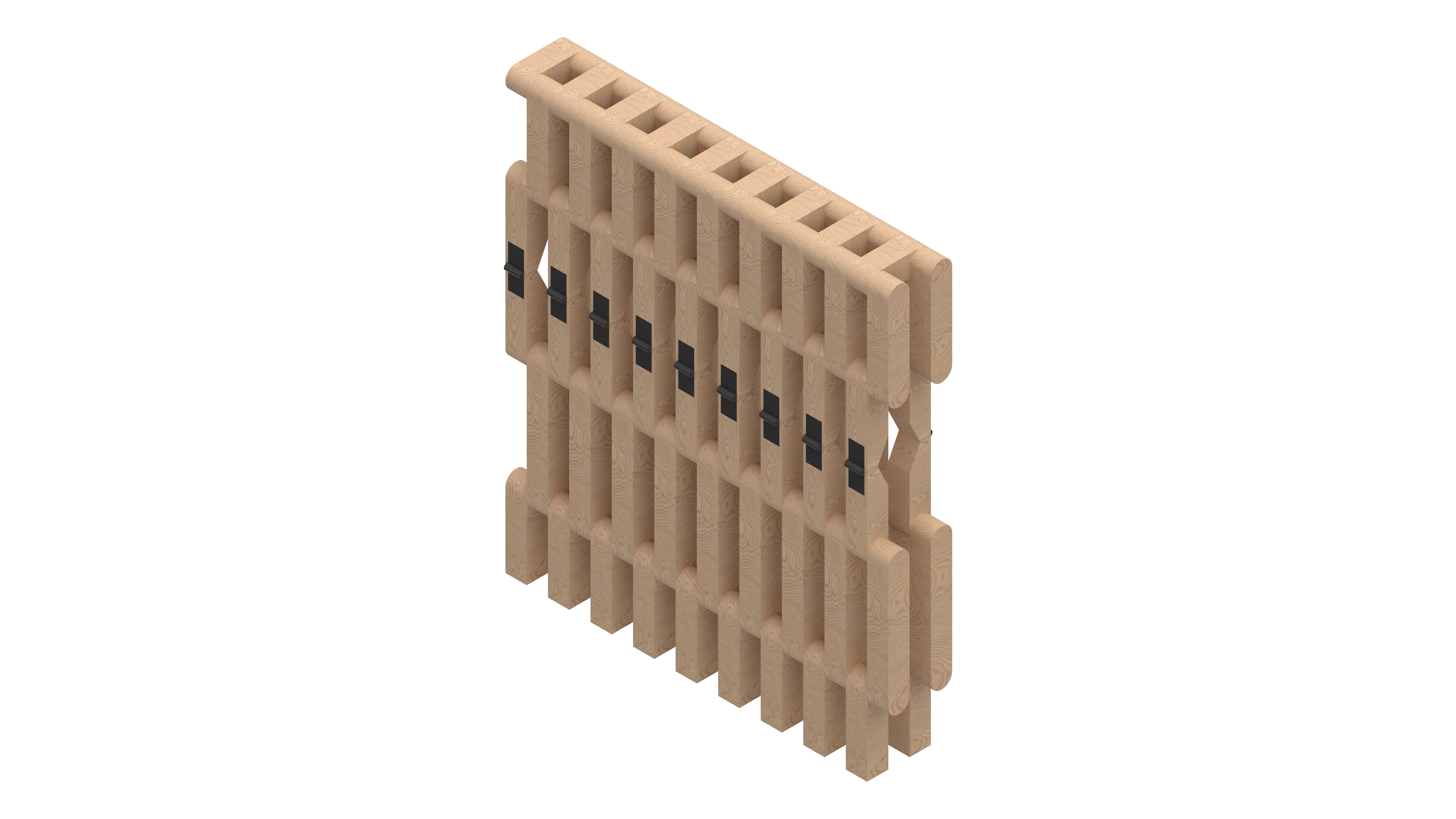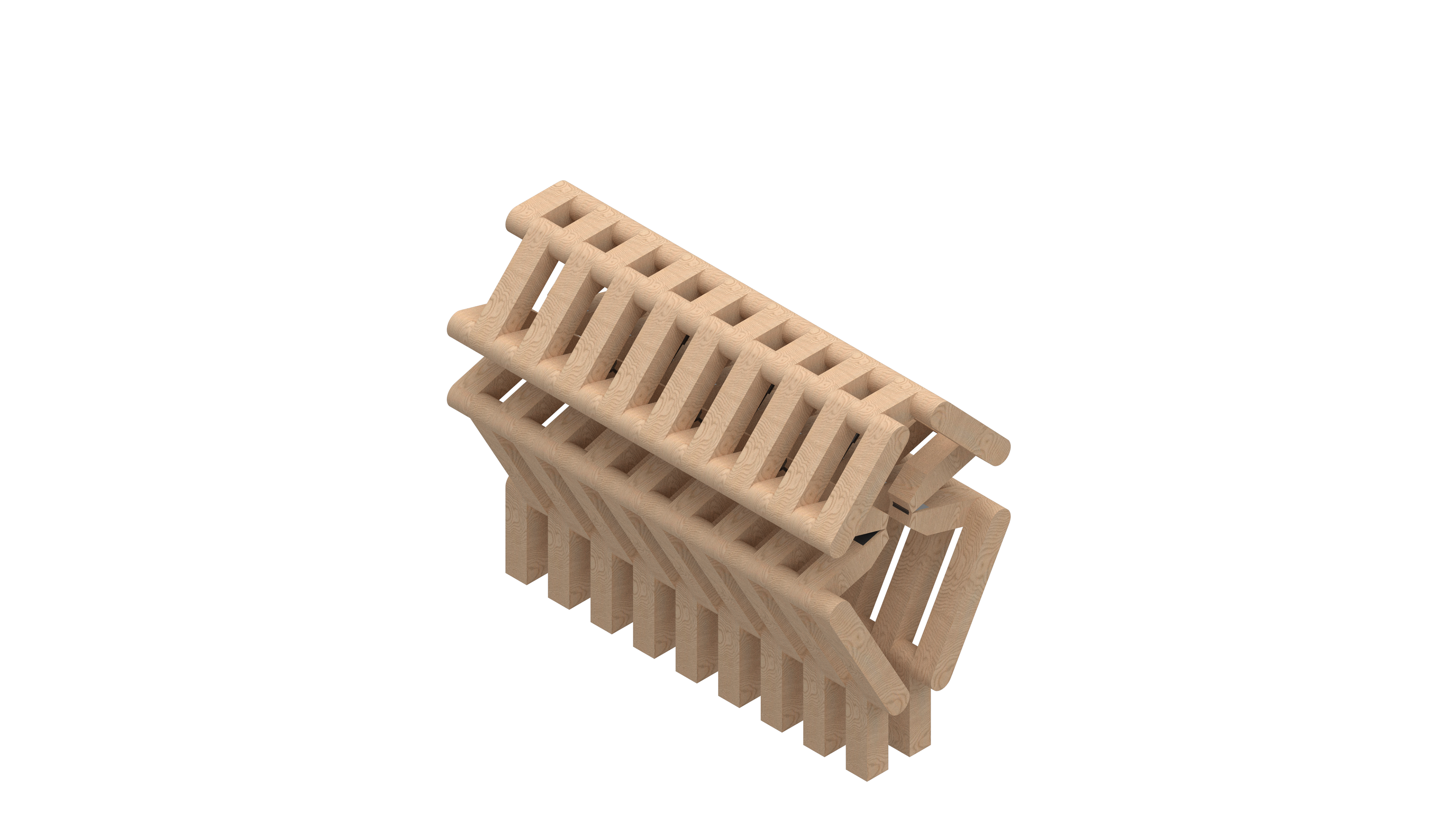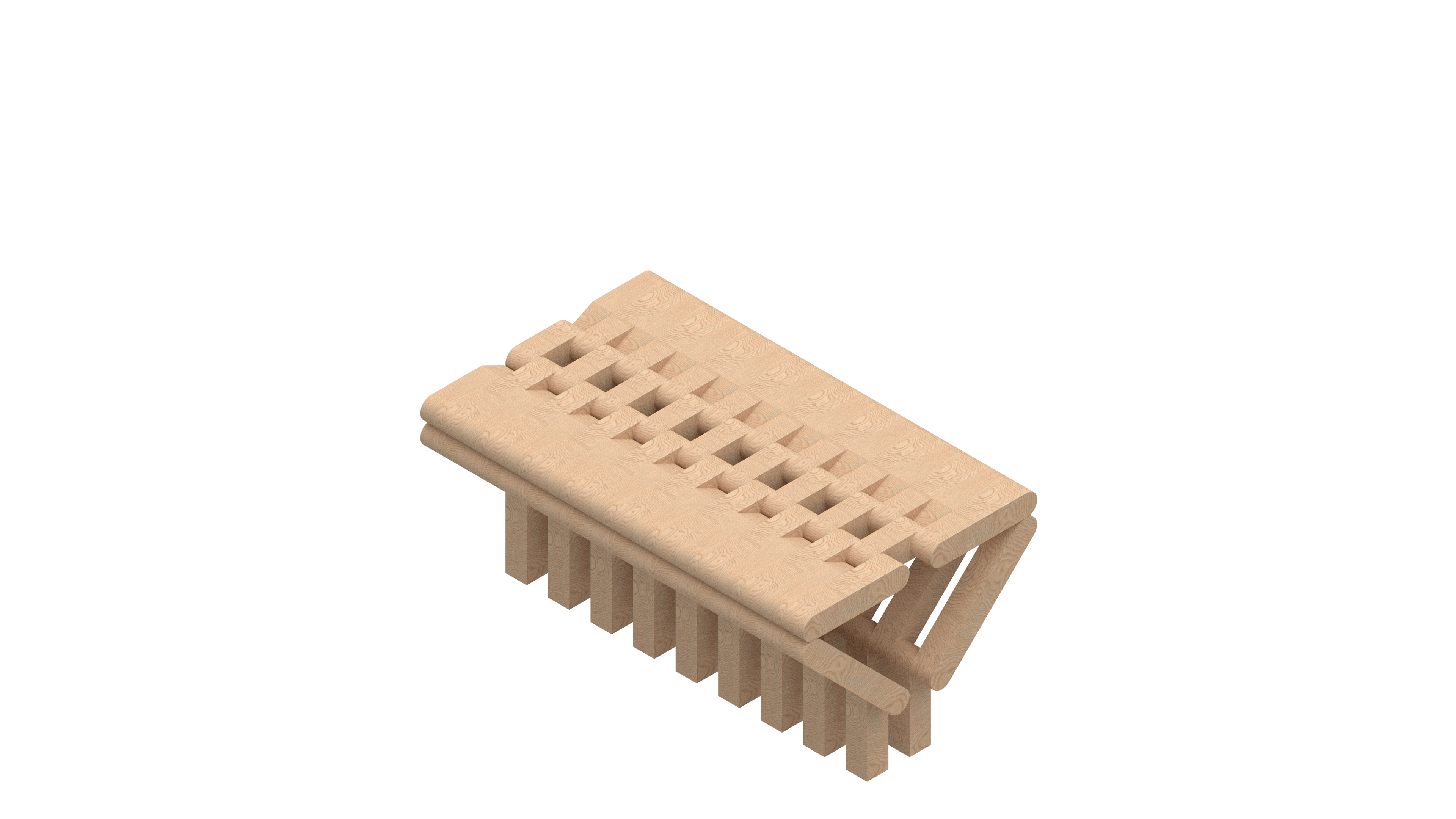Radcliffe’s fight for equal higher-education spanned 120 years, involving a relentless dedication to overcoming borders both physical (Harvard campus fences) and mental (prejudice). Prior, certain borders may have seemed immutable because they have been preserved for so long. However, once a single action alters them, people’s understanding of them begin to change. The distortion of the borders then becomes an opportunity for people to interact and learn from each other; beginning with Elizabeth Cary Agassiz’s founding of Society for the Collegiate Instruction of Women and continuing on to completely integrating female students into the Harvard campus. Over the Borders is a reflection on this history and a site for further conversation. At present, the issue and presence of borders persist. In Radcliffe’s current context as an Institute of Advanced Study, this work is an invitation for people to think about the creation and destruction of borders through play.
Two wooden fences mark out an enclosed space within the Wallach garden. Each part of the fences can be pushed down to become a bench. Upon encountering the fences, a person may touch them out of curiosity and find that they can be altered. Another person may see that and do the same, pushing down another fence to make a seat. The borders then become a shared space resulting from the dialogue between people.
The fences are constructed out of durable pine wood and aluminum, with pneumatic hinges that provide slow and controlled transformation into benches. Once a person leaves, the bench slowly folds back up into a fence, implying that borders require continuous work to prevent.
Two wooden fences mark out an enclosed space within the Wallach garden. Each part of the fences can be pushed down to become a bench. Upon encountering the fences, a person may touch them out of curiosity and find that they can be altered. Another person may see that and do the same, pushing down another fence to make a seat. The borders then become a shared space resulting from the dialogue between people.
The fences are constructed out of durable pine wood and aluminum, with pneumatic hinges that provide slow and controlled transformation into benches. Once a person leaves, the bench slowly folds back up into a fence, implying that borders require continuous work to prevent.


